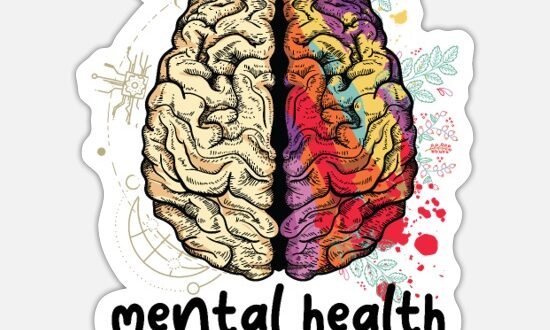Physical exercise is widely celebrated for its ability to enhance physical health, but its impact on mental health is equally profound and complex. While endorphins—the body’s natural mood lifters—play a role, the relationship between exercise and mental health extends far beyond this chemical response. Understanding the full spectrum of how physical activity affects mental well-being involves exploring various biological, psychological, and social mechanisms.
The Endorphin Effect: A Starting Point
Endorphins are often cited as the “feel-good” chemicals released during physical exercise. These neurotransmitters are produced by the brain and nervous system in response to pain and stress, acting as natural painkillers. The “runner’s high” is a well-known phenomenon attributed to endorphin release during prolonged or intense exercise.
While endorphins contribute to the mood-lifting effects of exercise, they represent only one part of a broader picture. The positive impact of physical activity on mental health involves multiple physiological and psychological processes.
Neurotransmitters and Brain Chemistry
Beyond endorphins, exercise influences various neurotransmitters that play crucial roles in mood regulation:
Serotonin:
Exercise increases the availability of tryptophan, an amino acid necessary for serotonin production. Serotonin is a neurotransmitter linked to mood stabilization, happiness, and overall well-being. Regular physical activity can help enhance serotonin levels, contributing to improved mood and reduced symptoms of depression.
Dopamine:
Known as the “reward” neurotransmitter, dopamine is involved in pleasure and motivation. Exercise stimulates dopamine release, which can enhance feelings of satisfaction and motivation. This effect is particularly beneficial for individuals struggling with depression and lack of motivation.
Norepinephrine:
This neurotransmitter is associated with the body’s stress response and plays a role in mood regulation and cognitive function. Exercise can increase norepinephrine levels, improving attention, focus, and mood.
The Impact on Brain Structure and Function
Regular physical exercise can induce structural and functional changes in the brain that contribute to mental health improvements:
Neurogenesis:
Exercise promotes neurogenesis, the process of forming new neurons, particularly in the hippocampus—a brain region crucial for memory and emotional regulation. Increased neurogenesis can improve cognitive function and emotional resilience.
Brain Plasticit:
Physical activity enhances brain plasticity, or the brain’s ability to adapt and reorganize itself. This increased plasticity can improve cognitive flexibility and emotional regulation, aiding in the management of stress and mental health conditions.
Reduction of Brain Atrophy
Regular exercise has been shown to reduce age-related brain atrophy and cognitive decline. By maintaining brain health, exercise can mitigate the risk of mental health disorders associated with aging.
Stress Reduction and Resilience
Exercise is a powerful tool for managing and reducing stress. Physical activity can influence the body’s stress response system in several ways:
Cortisol Regulation:
Exercise helps regulate cortisol, the primary stress hormone. Chronic stress often leads to elevated cortisol levels, which can negatively affect mental health. Regular physical activity can help lower cortisol levels, reducing stress and promoting a sense of calm.
Stress Response Modulation
Exercise can enhance the body’s ability to cope with stress by improving the efficiency of the stress response system. This increased resilience helps individuals better manage daily stressors and emotional challenges.
The Psychological Benefits of Exercise
Exercise provides numerous psychological benefits that contribute to overall mental well-being:
Enhanced Self-Esteem:
Engaging in regular physical activity can boost self-esteem and self-worth. Achieving fitness goals and experiencing physical improvements can foster a positive self-image and confidence.
Improved Sleep Quality:
Exercise promotes better sleep quality by helping regulate sleep patterns and reducing symptoms of insomnia. Adequate sleep is crucial for mental health, as it affects mood, cognitive function, and overall emotional well-being.
Social Interaction
Group exercise activities, such as fitness classes or team sports, provide opportunities for social interaction. Positive social connections and support networks can enhance mental health and reduce feelings of isolation.
Distraction and Mindfulness:
Exercise offers a healthy distraction from negative thoughts and stressors. Physical activity can serve as a form of mindfulness, allowing individuals to focus on the present moment and alleviate rumination.
The Role of Different Types of Exercise
Different types of exercise offer various benefits for mental health, and incorporating a range of activities can provide comprehensive mental health support:
Aerobic Exercise:
Activities such as running, cycling, and swimming enhance cardiovascular fitness and have been shown to reduce symptoms of depression and anxiety. Aerobic exercise increases the release of neurotransmitters and promotes overall brain health.
Strength Training:
Resistance exercises, such as weight lifting, can improve mood and self-esteem. Strength training also contributes to stress reduction and cognitive function by increasing dopamine and norepinephrine levels.
Mind-Body Exercises:
Practices such as yoga and tai chi combine physical movement with mindfulness and relaxation techniques. These exercises are effective for reducing stress, improving mood, and enhancing overall mental well-being.
Practical Tips for Incorporating Exercise into Daily Lif
To harness the mental health benefits of exercise, consider the following practical tips:
Find Enjoyable Activities:
Choose physical activities that you enjoy to increase adherence and motivation. Whether it’s dancing, hiking, or playing a sport, engaging in activities you love can enhance the mental health benefits of exercise.
Set Realistic Goals:
Start with achievable goals and gradually increase intensity and duration. Setting realistic goals can help build confidence and maintain motivation.
Make Exercise a Routine:
Incorporate physical activity into your daily routine to ensure consistency. Establishing a regular exercise schedule can help integrate exercise into your lifestyle and enhance long-term mental health benefits.
Seek Social Support
Exercise with friends, family, or join a group to increase social interaction and accountability. Social support can make exercise more enjoyable and provide additional mental health benefits.
Conclusion
The relationship between physical exercise and mental health is complex and multifaceted, extending well beyond the release of endorphins. By influencing neurotransmitters, brain structure, stress responses, and psychological well-being, exercise plays a vital role in promoting mental health. Understanding these mechanisms highlights the importance of incorporating regular physical activity into daily life to support overall mental and emotional well-being. Embracing a holistic approach to exercise can lead to profound benefits for both mind and body, fostering resilience, improved mood, and enhanced quality of life.
 Personal Finance and Attractive Interest Rates Unlock Smart Savings with Low Rates and Expert Financial Tips
Personal Finance and Attractive Interest Rates Unlock Smart Savings with Low Rates and Expert Financial Tips







